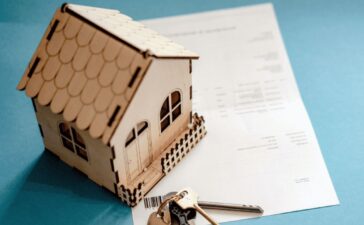Heating, Ventilation, and Air Conditioning (HVAC) technicians play a crucial role in maintaining the comfort and safety of indoor environments. Their expertise extends to various aspects of heating, cooling, and air quality systems in residential, commercial, and industrial settings. There are numerous reasons why someone might need the services of an HVAC technician, ranging from routine maintenance to emergency repairs and system installations.
It is important to know what an HVAC technician can do for you:
- Routine Maintenance and Tune-Ups: Regular maintenance is essential to ensure the efficient and reliable operation of HVAC systems. HVAC technicians are trained to perform scheduled inspections, cleanings, and tune-ups for heating and cooling equipment. This preventive approach helps extend the lifespan of equipment, improve energy efficiency, and prevent costly breakdowns.
- Seasonal Inspections: With the changing seasons, HVAC systems require specific adjustments. Before the onset of winter, an HVAC technician can inspect and service heating systems to ensure they are functioning properly and safely. Similarly, before summer, they can assess and maintain air conditioning units to provide optimal cooling during the hot months.
- Air Conditioning Repairs: When an air conditioning system fails to cool effectively or produces unusual noises, it’s a clear sign that something is amiss. HVAC technicians such as those at Back Bay Mechanical diagnose the issue, whether it’s a refrigerant leak, compressor problem, or malfunctioning component, and provide the necessary repairs to restore proper cooling.
- Heating System Repairs: In colder months, a malfunctioning heating system can be uncomfortable and even dangerous. Whether it’s a furnace, boiler, or heat pump, HVAC technicians can diagnose and repair issues such as insufficient heat, poor airflow, or ignition problems, ensuring a warm and comfortable indoor environment.
- Emergency Repairs: HVAC systems can break down unexpectedly, causing discomfort and potential safety hazards. HVAC technicians offer emergency repair services around the clock, addressing urgent issues to restore comfort and prevent damage to equipment.
- Indoor Air Quality Concerns: Indoor air quality is vital for health and comfort. HVAC technicians can identify factors affecting air quality, such as inadequate ventilation, excessive humidity, or airborne contaminants. They recommend and implement solutions like air purifiers, dehumidifiers, and ventilation systems to improve indoor air quality.
- Installation of New Systems: When constructing a new building or renovating an existing one, HVAC technicians are responsible for designing and installing heating and cooling systems. They ensure proper sizing, ductwork layout, and equipment placement to optimize comfort and efficiency.
- Replacement of Old Systems: Over time, HVAC systems wear out and become less efficient. An HVAC technician can assess the performance of an aging system and recommend replacement when repairs are no longer cost-effective. They help clients choose energy-efficient options that align with their needs and budget.
- Energy Efficiency Upgrades: As energy efficiency becomes increasingly important, HVAC technicians can suggest upgrades that reduce energy consumption and lower utility bills. This might involve replacing outdated equipment with energy-efficient models, installing programmable thermostats, or integrating smart HVAC controls.
- Thermostat Issues: Faulty thermostats can lead to temperature inconsistencies and increased energy usage. HVAC technicians diagnose thermostat problems, calibrate settings, and replace malfunctioning thermostats to ensure accurate temperature control.
- Ductwork Inspection and Cleaning: Ductwork can accumulate dust, debris, and allergens over time. HVAC technicians perform ductwork inspections, cleanings, and repairs to maintain proper airflow and prevent contaminants from circulating indoors.
- Refrigerant Recharge: Cooling systems like air conditioners and heat pumps require a proper level of refrigerant for effective operation. HVAC technicians can diagnose refrigerant leaks, seal them, and recharge the system with the correct amount of refrigerant.
- Carbon Monoxide Testing: HVAC systems that burn fuel (such as gas furnaces) can produce carbon monoxide, a deadly gas. HVAC technicians perform carbon monoxide testing to ensure that combustion systems are functioning safely and not emitting dangerous levels of this odorless gas.
- Humidity Control: Improper humidity levels can impact indoor comfort and health. HVAC technicians can recommend and install humidifiers or dehumidifiers to maintain ideal humidity levels, preventing issues like mold growth or overly dry air.
- Preventive System Upkeep: Regular maintenance and upkeep of HVAC systems go beyond just repairs and replacements. HVAC technicians perform preventive measures to ensure the long-term health of the systems. This includes lubricating moving parts, tightening electrical connections, checking system controls, and inspecting all components for wear and tear. These preventive measures help identify potential issues before they escalate into major problems, saving both time and money.
- Energy Audits and Efficiency Enhancements: For homeowners and businesses aiming to reduce their energy consumption and carbon footprint, HVAC technicians can conduct energy audits. These audits assess the overall energy efficiency of the HVAC systems and the entire building. Based on the findings, HVAC technicians offer recommendations for energy-saving improvements, such as sealing air leaks, upgrading insulation, or installing more efficient equipment.
- Zoning and System Customization: HVAC technicians can design and implement zoning systems that allow different areas of a building to be heated or cooled separately. This is particularly useful for larger spaces where certain areas might require different temperature settings. Zoning ensures comfort while optimizing energy usage by directing conditioned air only where it’s needed.
- Thermal Comfort Solutions: Achieving thermal comfort goes beyond temperature control. HVAC technicians take into account factors like humidity, air circulation, and radiant heat transfer. By analyzing these elements, they create solutions that provide holistic comfort and wellbeing for occupants.
- Solving Airflow Issues: Uneven airflow can lead to hot or cold spots within a space. HVAC technicians diagnose and rectify airflow issues caused by blocked ducts, improper equipment sizing, or inefficient distribution systems. Proper airflow ensures consistent temperatures and comfort throughout the building.
- Eco-Friendly Solutions: With environmental concerns in mind, HVAC technicians can guide clients toward environmentally friendly solutions. This might involve recommending energy-efficient equipment, promoting sustainable practices like geothermal heating and cooling, or suggesting solar-powered HVAC options.
- Maintenance Plans and Scheduling: Many HVAC companies offer maintenance plans that provide regular scheduled check-ups and services for HVAC systems. HVAC technicians set up these plans, taking the responsibility of system upkeep off the client’s shoulders. This proactive approach helps prevent unexpected breakdowns and ensures the system’s longevity.
In summary, the expertise of HVAC technicians encompasses a wide array of services that extend beyond basic repairs. They tackle energy efficiency, comfort optimization, air quality improvement, and more. By addressing these various aspects, HVAC technicians contribute significantly to creating safe, comfortable, and energy-efficient indoor environments for homes, businesses, and industrial facilities. Whether it’s routine maintenance, emergency repairs, or innovative system enhancements, HVAC technicians play a pivotal role in ensuring optimal HVAC performance and indoor wellbeing.





